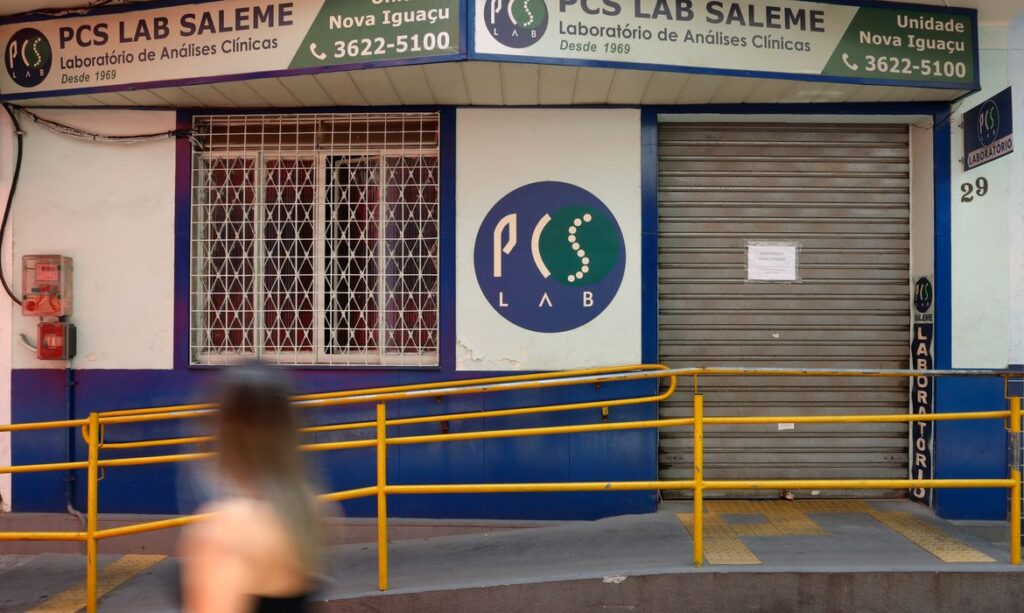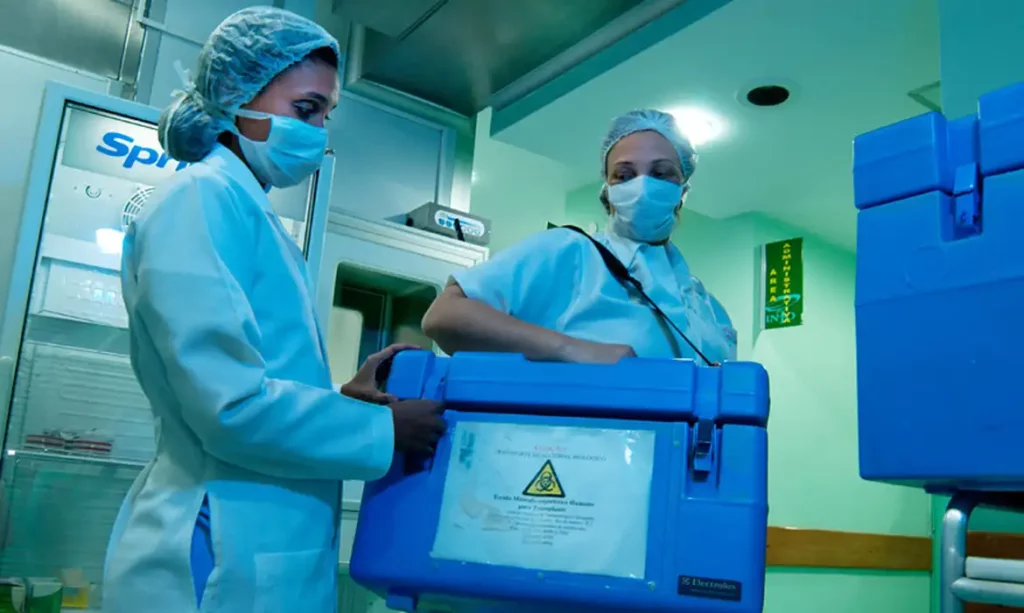São Paulo, Brazil – Six people have contracted HIV after receiving organ transplants from two different donors in state-run hospitals in Rio de Janeiro, Brazil.
According to investigators, a private laboratory called PCS Lab Saleme, which was contracted by Rio de Janeiro’s government, failed to properly test the organs donors. A partner at the laboratory was arrested on Monday.
The discovery of the infected patients, which was announced last week, has sparked outrage across Brazil.
The Ministry of Health and the Rio de Janeiro Transplant Center made statements after the confirmation of the infections and committed to investigating the case and ensuring that such errors do not happen again. The Ministry of Health is also providing assistance to the patients, whose names have not been disclosed for privacy reasons.
A task force was created to review all screening protocols and retest at least 286 patients who received organs tested by the same laboratory. The Rio de Janeiro police also opened an investigation and concluded that the laboratory reduced operational control over the quality of HIV tests in order to maximize profits.
The police did not explain how reduced control measures increased the lab’s profits, nor did they clarify whether there was a possibility that tests weren’t conducted at all.
“There was a breakdown in quality control, aimed at maximizing profit, while disregarding the preservation and safety of health testing,” said investigator André Neves.
In addition to one of the laboratory’s partners, three other technicians responsible for the test reports were also arrested this week. Lawyers representing PCS Lab Saleme stated that the company’s partners “will provide all necessary clarifications to the justice system.”
Under Brazilian law, all organs available for transplant must undergo rigorous testing to rule out the presence of viruses that could infect recipients, such as hepatitis, syphilis, and HIV.
 PCS Lab Saleme was closed after the case was revelead. Image credit: Fernando Frazão/Agência Brasil
PCS Lab Saleme was closed after the case was revelead. Image credit: Fernando Frazão/Agência BrasilAccording to PCS Lab Saleme’s contract with the State of Rio de Janeiro, the laboratory was supposed to analyze the blood of every organ donor. To determine if the donor had HIV, a blood sample is exposed to a reagent, which must be quality-tested before use.
This reagent quality test should have been carried out daily at the laboratory, but according to the investigation, an order was given to conduct it weekly. As a result, according to the police, a gap was created, increasing the chance of an ineffective reagent being used, compromising the test result.
“The reagents needed to be systematically analyzed daily, and there was a new order, which we are investigating, to reduce this inspection to a weekly basis. This gap allowed for flexibility, increasing the chances of a side effect — this devastating outcome we are now analyzing,” said Neves.
The Rio de Janeiro government also pointed to an error in two tests conducted by PCS Lab Saleme, which cleared organs from two HIV-positive donors for the transplant queue. In January, the family of a man authorized the removal of his heart, kidneys, corneas, and liver. The heart recipient and two people who received kidneys contracted HIV.
The person who received the cornea was not infected, and the liver recipient died shortly after surgery. In May, relatives of a woman donated her liver and kidneys, and all three recipients were infected with HIV.
The six patients were informed of the situation by the government of Rio de Janeiro and are being closely monitored by specialized medical teams. They are receiving appropriate treatment with antiretrovirals, which are effective in controlling the infection.
Although HIV is now a manageable condition with antiretroviral treatment, the fact that the virus was contracted due to a medical error has deeply affected both the patients and their families. Some have already announced plans to file lawsuits against the state of Rio de Janeiro and the hospitals, citing negligence and serious breaches in safety protocols.
Repercussions according to experts
Doctors and transplant specialists were shocked by the incident, which was considered an unprecedented tragedy in the history of transplants in Brazil. According to the Brazilian Association of Organ Transplants (ABTO), this was the first registered case in the country of patients contracting HIV after a transplant.
The ABTO emphasized that cases of HIV transmission through organ transplants are extremely rare, but that it is crucial to review protocols to ensure patient safety. According to the ABTO, additional measures may include conducting more advanced tests and reducing the time interval between organ collection and testing.
 This was the first case of patients contracting HIV after receiving organ transplants in Brazil’s history. Image credit: Ministério da Saúde
This was the first case of patients contracting HIV after receiving organ transplants in Brazil’s history. Image credit: Ministério da SaúdeThe Ministry of Health reinforced the importance of complying with all protocols when testing organs for transplantation and assured that the National Transplant System (SNT) is one of the most well-established, safe, and respected in the world.
“There are strict regulations in place to protect both donors and recipients, ensuring that transplants performed in the country maintain a high level of reliability. The SNT has regulatory mechanisms that already include specific protocols to minimize risks, such as the transmission of infectious diseases, and is constantly updated to keep pace with medical and scientific advancements in this field,” the ministry stated.
Although it is an extremely rare situation, there have been other cases of patients contracting HIV after organ transplants. In 2007, in the United States, four patients in Chicago contracted HIV and hepatitis C after receiving organs from an infected donor. In 2013, a patient in Colombia was infected with the virus after a kidney transplant.

 By Latin America Reports | Created at 2024-10-29 19:11:07 | Updated at 2024-10-30 17:26:06
1 week ago
By Latin America Reports | Created at 2024-10-29 19:11:07 | Updated at 2024-10-30 17:26:06
1 week ago



